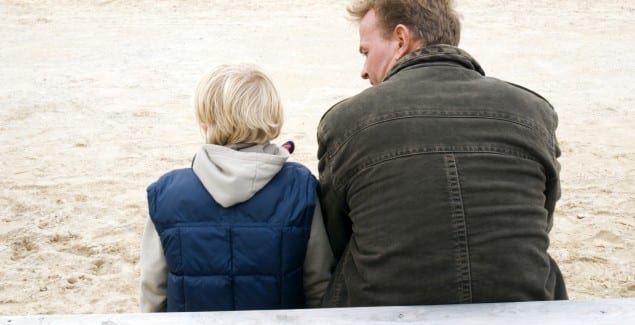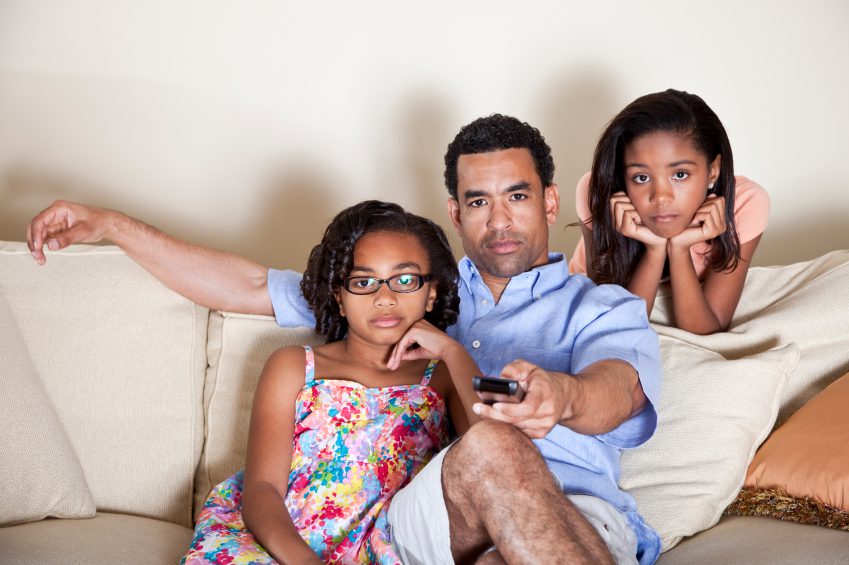How To Speak With Children About the Anniversary of the Boston Marathon Bombing

Posted in: Patriots' Day Project
Topics: Child + Adolescent Development, Hot Topics
In these weeks leading up to the 2014 Boston Marathon, we are collectively hearing about a range of reactions to the many reminders of the event’s significance. Some are feeling distressed, perhaps from listening to the widespread media coverage discussed in our previous post. Some are feeling inspired and “Boston Strong,” perhaps working up to a long run in marathon training this year. Still others appear to be oblivious to the reminders—or at least unaffected by them.
Children’s reactions vary just as widely, so the adults who love them must consider how they can best support each child. Parents recognize that there are a number of variables that influence a child’s unique response, including experiences and memories from last year, the ways family members have been affected by the events and the child’s level of development. Unfortunately, many of these are not things that parents can change or “fix,” as much as we might like to. But, attending to developmental differences will help us find effective ways to talk with and comfort our children. With this in mind, this post describes some “age appropriate” strategies to identify and address children’s concerns about the upcoming Boston Marathon.
Young Children (Age 3-5 Years):
Preschool-aged children think about the world in more concrete and egocentric ways than do older children and adults, and their verbal skills are still developing. Young children also tend to focus on parts of a complex situation instead of grasping the bigger picture. For example, a parent might be surprised to learn that for his son, the most memorable part of their trip to the movies was seeing the popcorn machine “pop”—not the movie itself. A young child’s understanding of why things happen is a mix of experience and imagination. Sometimes this is comical, as when a little girl attempts to “work” the arrivals display screen at the airport as if it were a giant iPad. But sometimes this is downright distressing. For example, a preschooler hearing a parent command sharply to “Turn off the TV now!” may feel that she is being punished, when in fact the parent is just trying to prevent her from witnessing media coverage that could be upsetting.
It’s easier to talk with a preschooler about a complex event like the marathon if the conversation is connected to the child’s own current experience. For example, when your child catches sight of a newspaper photograph, or hears an older sibling talking about whether the family will go to watch the event this year, ask him, “What do you remember about the marathon last year?” He might talk about seeing people litter the sidewalks with their empty water bottles, or he might describe the trip home, when the trains were very crowded and people seemed scared. You could then ask, “Do you know what made the people scared?” rather than assuming that he shares your memories.
Even young children can feel confused if adults say that something is safe, while they themselves sound anxious. So, work on making sure that your words and tone of voice tell the same story.
If young children have memories that are still frightening to them, reassure them that the memory is from a long time ago, and that the scary event is all over. Focus on providing the things that most affect a child’s day-to-day experience of safety, like predictable routines, and calm caregivers.
School-Aged Children (Age 6-12 Years):
Children between the ages of 6 to 12 have typically not yet begun puberty, or are still at the earliest stages of adolescence. They are learning about their own capabilities (“I’m a really good reader, but I can’t ever tag out anyone in dodgeball”), their families (“We always go away for vacation but my friend doesn’t”) and how to be good citizens in the classroom and broader community (“We did a bake sale fundraiser for Hurricane Irene, and then sold bracelets for the people who were hurt in the Boston Marathon. The bracelets made more money”).
It’s difficult to protect school-aged children from hearing about bad things that happen in the world, but often easier to gauge their understanding of these events. Ask your children what, if anything, they are seeing or hearing about this year’s marathon. Is it talked about at school (and if so, by teachers or students)? What do they remember from last year’s marathon and the shelter-in-place order? What happened when they returned to school? Do they have questions about last year—or more likely, questions about this year?
The fact that the “bad guys” didn’t escape is likely to be very reassuring to 6-12-year-olds. It’s a concrete detail that speaks to their safety now, and also fits well with their focus on what’s fair, and what’s “not fair!”
Answer questions as simply as you can, in practical terms. Children this age who are worrying about the safety of a parent running in this year’s marathon won’t be comforted by hearing about the importance of “not letting the terrorists win.” More comforting would be a response like, “My being safe is just as important to me as it is to you, and I wouldn’t be running this race if I didn’t feel very, very safe.” Some children may be upset to realize that you can’t “guarantee” safety. To calm them, you might try something like, “You’re right. It’s not completely, 100% impossible that something bad could happen this year. But, I think it’s really, really unlikely…the same way that it’s not impossible that the Yankees would get a home run every time they bat against the Red Sox for the next 100 years…but again, it’s really, really unlikely.”
Talk, too, about all the ways your family and community are ensuring that the marathon is safe. If you are planning to go to the marathon, make sure your children know that the enhanced police presence is there to prevent problems—not because there are problems. Establish your family’s safety plan: “I know you’ve been worried about an explosion, but what I’m worried about most is our getting separated from each other with so many people out. Let’s decide on a plan in case that happens.”
And finally, encourage your children to use their natural drive to take actions that do good for others—and make them feel good in return. For example, would they want to contribute allowance money to the One Fund? Host a bake sale? Make a sign cheering on returning runners?
Adolescents (Age 13-18 Years):
Supporting teenagers in the coming weeks will pose its own set of challenges. Starting in middle school and continuing through high school, adolescents are increasingly engaged with peers, so it becomes difficult, and even inappropriate, for parents to monitor all the ways they are learning about the world. Teens will be exposed to a lot of media about the marathon (more about children and media in our next post). They are also notoriously good at making parents feel that their input is useless, at best. All this can make talking to a teen about the marathon seem unnecessary (“She reads what she wants online, and is more up-to-date on current events than I am”), unwelcome (“I get the eye-roll whenever I try to ask if she’s worried”), and unhelpful (“I’m not going to push a conversation that he doesn’t want to have…it’s not worth the aggravation!”).
But, checking in with adolescents about this year’s marathon is important, even if all you learn is a little more about how your teenager thinks about things (or doesn’t). Reactions will depend, of course, on your family’s experience last year. Some teenagers may be trying to understand why someone not much older than they would choose to hurt so many. Others may be aware of lingering ethnic/racial tensions. Still others may be struggling to decide whether to push you to allow them to go without an adult to the race, or whether they’d prefer to have your “Absolutely not!” as an easy excuse to stay away.
While it’s hard to limit the information your adolescent accesses, try to gauge the impact of the information. “I’m seeing and hearing a lot about this year’s marathon… truthfully more than I want to hear sometimes. Are you hearing it discussed much? Do you think the coverage is helpful, or is it just making people anxious? Are your friends talking about going to watch? Are you wanting to go?”
Your teen is likely pushing for independence in many ways, and while you usually have a clear sense of what the boundaries are…this might feel different. Conveying confidence despite your own fears is one thing when your child will be by your side, but it’s something else entirely when you’re envisioning your smart-but-impulsive teen hanging out with her short-on-forethought friends near the finish line without you. It’s worth addressing the “big crowd” scenarios that would have worried you regardless—like their getting separated from friends, or being pulled into situations they aren’t quite equipped to deal with. They should also be made aware of the heightened security, and anticipate what that might feel like to them.
But honestly, it’s also worth talking about your own gut feelings—even if you know your teen will vehemently disagree: “I know it sounds completely overprotective to you, and it probably is, but this year, I’m having a really hard time with your going to the finish line. It’s my own reaction to the explosions last year, and not an issue of not trusting you. Regardless, I’m going to ask that we spend the day together as a family this year.”
And You?
Where does this leave the adults—the parents, teachers, coaches?
It leaves us with each other. We’ve all been preschool aged and school aged and teenagers. Those years are embedded in our memories more than we might think. Turning to one another, to the community itself for support, is the most robust way to “keep it together” as our own worries break through.
Remember that children of all ages will be affected by our own reactions to frightening events. The support of spouses, partners and other adults can help us to modulate our feelings so that we can be there for our kids as their own feelings take hold.

 Share
Share Tweet
Tweet






